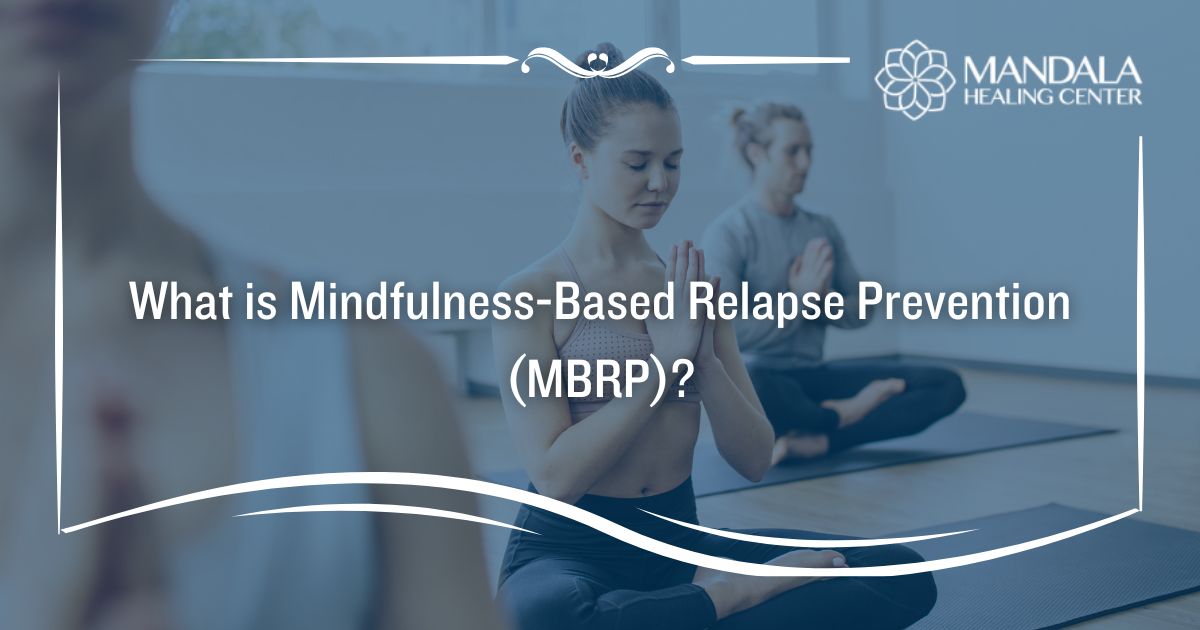Addiction is a severe and complex condition. Living with an untreated addiction can damage your health, relationships, and emotional well-being.
People who struggle with substance abuse and addiction need comprehensive, holistic care. Holistic treatment programs give people support and treatment to address the physical, emotional, and behavioral parts of substance abuse. Holistic programs can also help people develop new skills and routines that support long-term sobriety.
Many holistic addiction treatment programs encourage mindfulness. Mindfulness allows people to focus on what is happening now. It can help people stay in the present rather than worrying about the past or future.
Mindfulness-based relapse prevention (MBRP) is an evidence-based treatment approach. MBRP may improve recovery outcomes and help people sustain sobriety in the long term.
In this article, we will explore mindfulness-based relapse prevention. You will learn how mindfulness can help people stay sober and feel more peace during recovery.
Reach out to the Mandala Healing Center specialists for information about our treatment programs. You may also ask questions, verify your insurance, or schedule an intake assessment.
What is Mindfulness?
Mindfulness is a gentle, constant awareness of what is happening in the present moment. When people are mindful, they are aware of their thoughts and feelings. They do not react to events around them. They are in control of their responses and have more peace.
Practicing mindfulness can happen in many ways. People may practice mindful meditation independently or in a group setting. Some may follow guided meditations, and some may meditate by sitting quietly and letting thoughts come and go.
What is Mindfulness-Based Relapse Prevention (MBRP)?
Mindfulness-based relapse prevention (MBRP) is a relapse-prevention program. It can help people manage cravings and negative thoughts, the two most significant factors contributing to relapse.
Mindfulness-based relapse prevention programs use exercises and techniques to help people gain more awareness of their feelings. People learn to experience their emotions objectively. This can help them avoid destructive reactions when faced with difficult emotions.
Here are some of the core aspects of MBRP.
Live in the present
The core of mindfulness is an awareness of the present moment. Many people struggle with feelings of guilt, shame, and regret about the past or anxiety about the future. During MBRP sessions, people learn to focus on their breath or another anchor to keep them grounded in the present.
Emotional awareness
Many with addiction struggle with feelings of depression, low self-worth, or negative thoughts. These feelings can trigger a relapse.
MBRP teaches people to identify negative emotions and sit with them. When people are aware of negative feelings, they can understand where they come from. They can find new, healthy strategies to move past them.
Awareness of cravings
Cravings are a reality during addiction recovery. Many believe that they simply have to be “strong enough” to withstand cravings. However, cravings are a result of changes in the brain that occur during prolonged periods of substance abuse.
People in MBRP programs learn to sit with their cravings. They gain awareness of their cravings and use coping strategies to withstand them.
Mindful meditation
Many people use drugs and alcohol to escape from their negative feelings. During mindfulness-based relapse prevention programs, people practice daily meditations.
These meditation practices encourage people to sit with their thoughts and emotions. People develop the ability to experience emotions without reacting. They explore their inner worlds and get to know themselves in a peaceful way.
Urge surfing
Urge surfing is based on the idea that cravings can come in waves. Like waves in the sea, a craving can start slowly, then peak, and then dissolve. Knowing how cravings work–and understanding that they will eventually fade–is essential in recovery.
During mindfulness-based relapse prevention sessions, people learn how to “surf” these waves. This involves reminding yourself a craving will go away and using healthy coping skills to resist the urge to use addictive substances.
MBRP programs encourage people to practice these skills daily. Daily practice ensures people stay active in their mindfulness and get the most out of their practice.
What are the Benefits of Mindfulness-Based Relapse Prevention?
Research shows that MBRP is more effective than other traditional recovery programs, including 12-step programs. But why is this the case?
Mindfulness-based relapse prevention programs focus on reducing negative thoughts and cravings. Many addiction experts believe that negative thinking and cravings are two of the most significant factors contributing to relapse.
MBRP gives people practical tools and strategies to reduce negative thoughts and “ride the wave” of cravings. This makes it very effective at helping people avoid relapse.
Learn More About Mindfulness-Based Relapse Prevention
If you or someone you love struggles with substance abuse or addiction, you are not alone. Effective, holistic treatment is available at the Mandala Healing Center.
Contact our specialists now to learn how mindfulness-based relapse prevention strategies can help you during recovery. You may also schedule an appointment or explore our other treatment programs.












